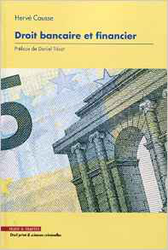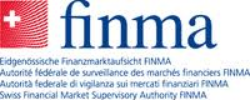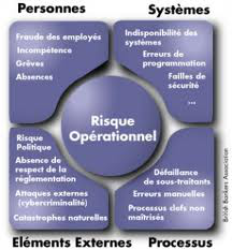
16 juin 2016
Sur le vif

Le professeur Hervé Causse sort un ouvrage de plus de 800 pages : Droit bancaire et financier.
D'ordinaire, on distingue le "Droit bancaire", d'un côté et le "Droit financier" de l'autre, chacun donnant lieu à des ouvrages distincts, le droit bancaire s'étant depuis longtemps détachant du droit commercial et n'ayant jamais vraiment quitté le droit civil, le droit financier faisant l'objet plus récemment d'ouvrages.
Dans les ouvrages de "Droit bancaire", l'on trouve les contrats, les opérations (le crédit), les mécanismes (comme la monnaie), les institutions (comme la Banque de France) et parfois les règles répressives spécifiques.
Dans les ouvrages de "Droit financier", l'on rencontre avant tout le marché financier, les opérations financières (comme toutes les opérations sur titres et les prises de contrôles des sociétés cotées), l'économie y est beaucoup plus présente, le droit que l'on ose plus guère qualifié de "comparé" tant le droit américain y est comme lui, soit de fait en raison de l'extraterritorialité soit comme modèle, les règles répressives se glissant partout, jusqu'au cœur de ce qui semble être aujourd'hui une branche du droit.
L'ouvrage très important d'Hervé Causse va plus loin et correspond à la réalité : il fusionne le Droit bancaire et le Droit financier.
Il le fait parce qu'il part de la vie du secteur, c'est-à-dire des professionnels. Or, les professionnels travaillent dans les banques. Puis, il décrit ceux qui les admettent et contrôlent leurs activités, c'est-à-dire les autorités de supervision et de régulation. Il continue en décrivant pour le lecteur les instruments, prouesses financiers que les banquiers ont inventées.
Ainsi aspiré par la réalité financière, que reste-t-il de l'attachement civiliste du Droit bancaire ? Pour ne prendre qu'un exemple, lorsque l'auteur s'interroge sur la notion même de "service bancaire" par rapport à celle de "service financier", il constate l'incertitude des notions. Le Droit bancaire est ainsi en train d'oublier le Code civil, les techniques de dépôt en étant un exemple.
Grâce au livre d'Hervé Causse, le lecteur comprend que les règles étant écrites désormais par ceux qui conçoivent la Régulation financière, elles doivent trouver leur ossature dans celle-ci.
6 juin 2016
Thesaurus : Doctrine

Référence complète : Causse, H., Droit bancaire et financier, Préface de Daniel Tricot, coll. "Droit privé & sciences criminelles",Maré & Martin, 2015, 839 p.
Lire la quatrième de couverture.
Lire l'introduction de Daniel Tricot;
Mise à jour : 26 novembre 2012 (Rédaction initiale : 26 novembre 2012 )
Sur le vif

Mise à jour : 10 septembre 2012 (Rédaction initiale : 3 septembre 2012 )
Sur le vif

Mise à jour : 3 septembre 2012 (Rédaction initiale : 29 août 2012 )
Sur le vif

Mise à jour : 17 juillet 2012 (Rédaction initiale : 5 juillet 2012 )
Sur le vif

Mise à jour : 20 juin 2012 (Rédaction initiale : 14 juin 2012 )
Sur le vif

Mise à jour : 19 juin 2012 (Rédaction initiale : 12 juin 2012 )
Sur le vif

Mise à jour : 29 mai 2012 (Rédaction initiale : 20 mai 2012 )
Sur le vif

Mise à jour : 21 mai 2012 (Rédaction initiale : 2 mai 2012 )
Sur le vif

Mise à jour : 18 mai 2012 (Rédaction initiale : 12 mai 2012 )
Sur le vif

Mise à jour : 10 mai 2012 (Rédaction initiale : 5 mai 2012 )
Sur le vif

Mise à jour : 9 mai 2012 (Rédaction initiale : 11 avril 2012 )
Sur le vif

Mise à jour : 13 avril 2012 (Rédaction initiale : 13 avril 2012 )
Parutions : Neutrality in Systems of Economic Regulation

Translated Summaries
The translated summaries are done by the Editors and not by the Authors.
ENGLISH
Prudential regulation applied to banks is caught swinging back and forth between two objectives.
FRENCH
La réglementation prudentielle appliquée aux banques oscille constamment d’un objectif à l’autre.
Mise à jour : 23 mars 2012 (Rédaction initiale : 9 janvier 2012 )
Parutions : I. Articles Isolés

Translated Summaries
In The Journal of Regulation the summaries’ translation are done by the Editors and not by the authors
ENGLISH
Interchange fees set by the main credit/debit card associations play an important role in the retail banking sector, however they remain largely invisible to consumers.
FRENCH
Les frais d’interchange fixés par les principales associations de cartes de crédit jouent un rôle important dans le secteur des services bancaires de détail, mais ils restent largement invisibles pour les consommateurs.
SPANISH
Tasas de intercambio establecidas por las asociaciones principales de tarjetas de crédito/débito juegan un rol importante en el sector de negocio de bancario minorista. No obstante, permanecen por la mayor parte invisibles a los consumidores.
ITALIAN
Le commissioni interscambio su carte di credito/debito fissate dalle principali associazioni giocano un ruolo importante nel settore dell’attività bancaria al dettaglio, tuttavia sono ancora poco visibili ai consumatori.
ARABIC
رُسوم التبادُل التي وُضِعت مِن طرفِ جمعيات بطاقة الائتمان لها دورُ أساسي في مَجال المصرفية للخدمات الافرادية, لكِنَّ بقِيت هذِهِ الرُّسُوم غيرُ ظاهِرة لِكثِير المُستهلِكين.
..................
Other translations forthcoming.
Mise à jour : 9 janvier 2012 (Rédaction initiale : 9 janvier 2012 )
Contributions

Mise à jour : 4 janvier 2012 (Rédaction initiale : 14 décembre 2011 )
Parutions : I. Articles Isolés

Translated Summaries
In The Journal of Regulation the summaries’ translation are done by the Editors and not by the authors
ENGLISH
While financial regulation aims at achieving market stability, regulating markets can sometimes take an ironic turn when regulations end up having consequences that differ from their original regulatory purpose. The article provides such an example of regulation’s irony: how a regulatory change in Germany led Moody’s to downgrade 12 banks, therefore weakening such institutions and consequently enhancing the current issues of market volatility and credit cost.
FRENCH
Bien que la réglementation financière vise à assurer la stabilité du marché, la régulation des marchés peut parfois prendre une tournure ironique quand la régulation finit par avoir des conséquences qui diffèrent de son objectif de régulation d’origine. L’article fournit un exemple de l’ironie de la régulation : comment un changement de réglementation en Allemagne a conduit Moody’s à déclasser 12 banques allemandes,, donc à affaiblir ces institutions et par conséquent à accroître les problèmes actuels de la volatilité du marché et le coût du crédit.
ITALIAN
Quando la regolazione è volta ad ottenere la stabilità del mercato, l’evoluzione di questi mercati oggetto di tale regolazione può essere particolarmente ironica quando la regolazione ha delle conseguenze ben differenti da quelle originariamente prepostesi. Questo articolo cerca quindi di mettere in evidenza un esempio di questa ironia: in effetti, un cambio di regolatore in Germania ha portato Moody’s a tagliare il rating di 12 banche, indebolendo ancora di più tali istituzioni ed aumentando si conseguenza le questioni relative alla volatilità del mercato e del costo del credito.
.......................
Other translations forthcoming
Mise à jour : 22 décembre 2011 (Rédaction initiale : 16 décembre 2011 )
Contributions

Mise à jour : 21 décembre 2011 (Rédaction initiale : 30 novembre 2011 )
Contributions

Mise à jour : 12 décembre 2011 (Rédaction initiale : 30 novembre 2011 )
Analyses Sectorielles

Translated Summaries
In The Journal of Regulation the summaries’ translation are done by the Editors and not by the authors
ENGLISH
On 16 November 2011, Moody’s downgraded twelve public-sector German banks, after regulatory changes in Germany and the EU.
FRENCH
Le 16 novembre 2011, Moody"s a dégradé douze banques publiques allemandes, après des changements dans la régulation financière en Allemagne et dans l’Union Européenne.
SPANISH
El 16 de noviembre del 2011, Moody’s degradó doce bancos del sector público alemán, después de cambios regulatorios en Alemania y la UE.
ITALIAN
Il 16 novembre 2011, Moody’s ha declassato dodici banche tedesche del settore pubblico, dopo dei cambiamenti nella regolazione finanziaria in Germania e nell’Unione europea.
...........................
Other translations forthcoming.
Mise à jour : 8 décembre 2011 (Rédaction initiale : 5 octobre 2011 )
Parutions : Neutrality in Systems of Economic Regulation

Translated Summaries
ENGLISH
The subject of neutrality brings to my mind a certain number of preliminary ideas and reminiscences.
First of all, the image of Buddha comes to mind, because it alone expresses the extent to which neutrality is an endless subject, since by thinking about the fact that he isn’t thinking about anything, Buddha is still thinking about something. It also makes me think of contemporary music’s constant attempts to attain a form of neutrality: yet this goal remains unattainable, because it is evident that the search for the neutral, in a sound or a timbre, can probably never be found.
FRENCH
Tout d’abord, la figure du Bouddha, qui exprime à elle seule combien la question de la neutralité est un thème sans fin, car en pensant qu’il ne pense à rien, le Bouddha pense malgré tout à quelque chose.
Il me fait penser aussi à la musique contemporaine, à son souci constant d’atteindre une forme de neutralité ; préoccupation à jamais déçue lorsqu’elle reconnaît ultimement que le neutre, en ayant toujours une qualité – un son, un timbre - est probablement introuvable.
SPANISH
El principio de los estándares de la neutralidad (el ejemplo de estándares de contabilidad)
El tema de la neutralidad trae a luz un cierto número de ideas preliminares.
Para comenzar, la figura de Buda viene a mente, porque él sólo expresa la naturaleza interminable que es el tema de la neutralidad, ya que al pensar en el hecho de que él no piensa en absolutamente nada, Buda aún así piensa en algo. También me hace pensar el intento constante de la música contemporánea de alcanzar una forma de neutralidad: pero este objetivo permanece inalcanzable, porque es evidente que la búsqueda de lo neutral, en un sonido o un timbre, probablemente nunca se podrá encontrar.
.....................
Other translations forthcoming.
Mise à jour : 26 septembre 2011 (Rédaction initiale : 4 juillet 2011 )
Analyses Bibliographiques : Symposiums

ENGLISH
On May 20, 2011, a colloquium was held in Paris on the question of How should the Audit be regulated?, organized by The Journal of Regulation, l’Ecole de droit de la Sorbonne, and KPMG France, one of the Journal’s privileged partners. The participants were Jean-Luc Decornoy, Nathalie de Basaldua, Alain Couret, Marie-Anne Frison-Roche, Christine Thin, Stephen Haddrill, Claude Cazes, Etienne Wasmer, and Mara Cameran. The reflections and discussions bore upon the European Commission’s Green Paper on Audit Policy. The colloquium’s ambition was to discuss the methodological links that must guide the future of the Audit, both in relation to financial regulation and competition, and also to analyze what the inspirations for audit reform should be, especially by using the available economic studies. Each participant agreed that the most important goal was to ensure that the audit is of very high quality, and everything ought to converge towards this goal.
ITALIAN
Relazione bibliografica (Convegno): Vers quelle régulation de l’audit faut-il aller? (Come dovrebbe essere regolato l’audit ?)
Il 20 maggio 2011, si è tenuto a Parigi un convegno sulla questione di come dovrebbe essere regolato l’audit, organizzato da The Journal of Regulation, da l’Ecole de droit de la Sorbonne e KPMG France, partner privilegiato della rivista. I partecipanti erano Jean-Luc Decornoy, Nathalie de Basaldua, Alain Couret, Marie-Anne Frison-Roche, Christine Thin, Stephen Haddrill, Claude Cazes, Etienne Wasmer e Mara Cameran. Le riflessioni e le discussioni si sono concentrate sul Libro Verde della Commissione europea sulla politica in materia di audit. L’ambizione del convegno era di studiare i nessi metodologici che devono costituire le linee guida dell’audit, tenendo conto della regolazione finanziare e della libera concorrenza. Il convegno mirava inoltre ad analizzare le possibili piste di una riforma dell’audit, sulla base anche di studi di tipo economico. Ogni partecipante ha sottolineato che lo scopo più importante era quello di assicurare un’attività di audit di grande qualità, e che tutti gli sforzi dovrebbero convergere verso tale scopo.
SPANISH
Informe bibliográfico (Simposio): ¿En qué dirección debe dirigirse la regulación?
El 20 de mayo del 2011 se llevó a cabo un coloquio en París sobre la cuestión de “Cómo debe regularse la auditoría?” organizado por The Journal of Regulation, l’école de droit de la Sorbonne y el KPMG France, uno de los asociados principales de esta publicación. Los participantes incluyen Jean-Luc Decornoy, Nathalie de Basaldua, Alain Couret, Marie-Anne Frison-Roche, Christine Thin, Stephen Haddrill, Claude Cazes, Etienne Wasmer, and Mara Cameran. Las reflecciones y discusiones se centraron sobre el Papel Verde de la Comisión Europea sobre la política auditiva. La ambición de este coloquio era de discutir las conexiones metodológicas que deben guiar el futuro de la Auditoría, tanto en relación con la regulación de finanzas y la competencia, y también de analizar cuáles deben de ser las inspiraciones para la reforma de la auditoría, especialmente al usar los estudios económicos disponibles. Cada participante concertó que el objetivo más importante era de asegurar que la auditoría sea de alta calidad, y que todo ha de converger hacia este objetivo.
PORTUGUESE
Informe bibliográfico (Symposium): vers quelle régulation de l’audit faut-il aller ? Como deveria a auditoria ser regulada?
Em 20 de maio de 2011, um colóquio foi realizado em Paris sobre a questão Como deveria a auditoria ser regulada?, organizado por The Journal of Regulation, l’Ecole de droit de la Sorbonne, e KPMG France, um dos principais parceiros deste periódico. Os participantes foram Jean-Luc Decornoy, Nathalie de Basaldua, Alain Couret, Marie-Anne Frison-Roche, Christine Thin, Stephen Haddrill, Claude Cazes, Etienne Wasmer, e Mara Cameran. As reflexões e discussões surgiram a partir do Informe Verde sobre Política de Auditoria da Comissão Europeia. O propósito do colóquio foi discutir as ligações metodológicas que devem guiar o futuro da auditoria, ambos em relação com regulação financeira e concorrência, e também analizar quais deveriam ser as inspirações para a reforma da auditoria, especialmente usando os estudos econômicos disponíveis. Todos os participantes concordaram que o objetivo mais importante seria assegurar que a auditoria é de alta qualidade, e que tudo deve convergir para este objetivo.
Padrão contábil – Alternativa financeira – Auditoria – Mercado de auditoria – Falência – Big Four – Certificação – Colóquio – Concentração – Confiança – Conflito de interesses – Cooperação – Custo – Agência de notação – Operador crucial – Definição – Deontologia – Mercado desregulado – Eficiência – Europa – Mercado europeu de auditoria – Comissão Europeia – Especulação – Crise financeira – Mercado financeiro – Futuro – Mercado global – Objetivo – Informe Verde sobre auditoria – Incentivo – Independência – Informação – Informação assimétrica – Fórum de auditoria internacional – Itália – Auditoria conjunta – Responsabilidade – Gerente – Votação obrigatória – Mercado – Expectativas de mercado – Micro economia – Acaso moral – Opacidade – Opinião – Perímetro – Preço – Lucro – Bem público – Interesse público – Serviço público – Qualidade – Economia real – Informação do risco – Ceticismo – Responsabilidade social – Risco sistêmico – Raciocínio teleológico – Trust – Reino Unido – Estados Unidos da América.*
* Em The Journal of Regulation, estas palavras-chave são fornecidas pelo Editor e não pelo Autor.
Other translations forthcoming.
Mise à jour : 19 septembre 2011 (Rédaction initiale : 14 septembre 2011 )
Contributions

Mise à jour : 31 août 2011 (Rédaction initiale : 8 juillet 2011 )
Contributions

